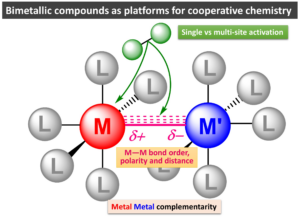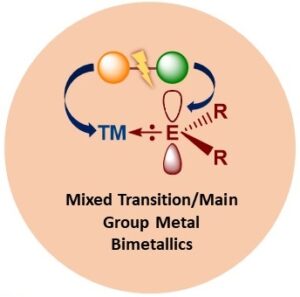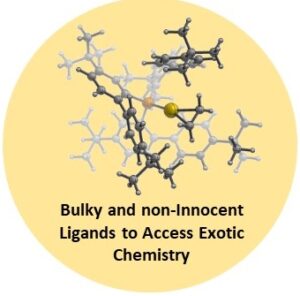
The main focus of the Campos group is exploring novel or unusual modes of chemical cooperation. To do this we are developing strategies for cooperative small molecule activation and catalysis using transition metal and main group organometallic complexes. We believe that cooperativity will be crucial to overcome the main limitations of current catalytic protocols. Nature (enzymes) relies on cooperativity and confinement to be the masters of catalysis. We aim to create synthetic approaches that permit to disclose and study in detail unusual modes of chemical cooperativity, mostly relying on bimetallic architectures and the use of crowded spaces at molecular level.
Currently our work can be divided into three interrelated and complementary main research lines:
How do we work?
Synthesis. We use common techniques for the preparation and handling of oxygen- and moisture-sensitive organometallic and coordination compounds, including Schlenk and glove-box techniques.
Characterization. Homogeneous systems are characterized through spectroscopic (NMR, IR, HRMS, UV-vis, EPR) and analytical methods (Elemental Analysis). Students in our group acquire considerable expertise in NMR spectroscopy, including the analysis of weak interactions, dynamic behavior, variable temperature… Particular emphasis is also given to X-ray diffraction techniques, where we run and analyze our own samples.
Reactivity/Catalysis. We investigate all aspects of reactivity and catalysis, particularly in challenging transformations. There is no specific target if the transformation looks interesting, but we love to focus on challenging small molecules such as carbon dioxide and other oxides, as well as C-H bonds, among others. Rather than long scopes, we are more interested in acquiring mechanistic understanding by both experimental and computational investigations.



